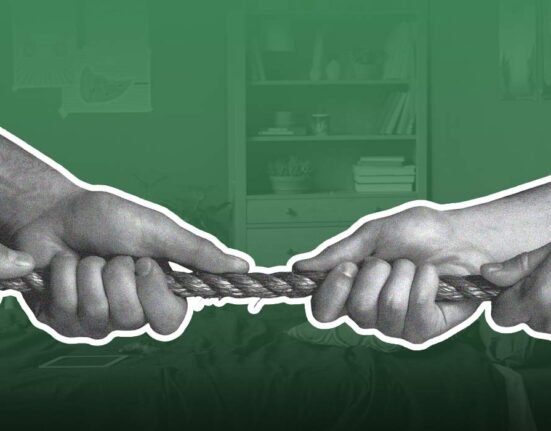When we picture someone with a high IQ, we often imagine smooth success and crystal-clear thinking. But intelligence isn’t always as straightforward as it seems. For some, a sharp mind also comes with a tendency to overthink, worry, and feel anxious. More and more experts are looking into the connection between giftedness and anxiety. Could being highly intelligent also mean being more prone to emotional stress? The answers aren’t black and white, but understanding this link gives us a better look at the challenges gifted people may face.
What Does It Mean to Be Gifted?
Before diving into the anxiety part, let’s first define what we mean by “gifted.” It’s not just about getting top marks or having a high IQ. Giftedness includes strong thinking abilities, quick problem-solving, creativity, and a deep curiosity about the world. These individuals often learn quickly, pick up tough ideas with ease, and show passion in their interests. But being gifted can also mean seeing the world through a different lens:
- Uneven Development: A gifted child may be far ahead in thinking, but still act their age emotionally or socially. This mismatch can make them feel out of place.
- Deeper Awareness: They often grasp global issues or injustices at a young age, which can be inspiring—but also distressing.
- Big Feelings: Emotions—both good and bad—can be felt more deeply and intensely.
What Is Anxiety, Really?
Anxiety is more than just nervousness. It’s a feeling of unease or fear, especially when something uncertain is coming up. It’s normal in stressful situations. But if those feelings become constant or overwhelming, they might be signs of an anxiety disorder. Common types include general anxiety, social anxiety, panic attacks, and obsessive thoughts. Symptoms can include racing thoughts, restlessness, a pounding heart, or stomach troubles.
Why Might Gifted People Be More Anxious?
The idea that giftedness and anxiety are connected isn’t new. Here are a few reasons why experts think this might happen:
1. Extra Awareness and Sensitivity
Gifted people often notice more social cues, patterns, or even problems others might miss. While this sharp awareness can bring insight, it can also lead to overthinking and worrying about big issues like the environment or fairness. Constantly processing so much can wear them down mentally and emotionally.
2. Perfectionism and Fear of Failing
Many gifted individuals want to excel and hold themselves to very high standards. While this can lead to success, it also causes pressure. Fear of failing or disappointing others can cause anxiety. Even small mistakes may feel huge. Some might avoid trying new things altogether to escape the risk of failing.
3. Feeling Out of Sync and Lonely
Gifted children often develop faster mentally than emotionally. As a result, they may not relate easily to peers their age. Feeling different or not fitting in can lead to social anxiety or loneliness. Not having anyone who “gets them” can be very isolating.
4. Dabrowski’s Overexcitabilities
Psychiatrist Kazimierz Dabrowski introduced the idea that gifted people respond to the world more intensely. These strong reactions fall into five areas:
- Body Energy: Always moving, fast talking.
- Sensory Sensitivity: Discomfort from noise, light, or touch.
- Curiosity: Endless questions and love of learning.
- Imagination: Rich inner world, vivid dreams, fear of the unknown.
- Emotions: Feeling deeply – joy, sadness, empathy.
While not disorders, these traits can make gifted people more anxious. For example, emotional sensitivity can heighten worries, and deep thinking can lead to mental loops.
5. External Pressure and Misunderstood Needs
Sometimes schools don’t challenge gifted students enough, which leads to boredom. Other times, they’re placed in competitive settings that pile on pressure. Being misunderstood by teachers, friends, or even parents can also add stress. Telling them to “stop overthinking” may come off as dismissive when their feelings are real and valid.
A Flip Side: Intelligence Can Also Be a Shield
But it’s not all negative. Not all gifted people feel more anxious than others. Some research even shows they may experience the same or lower levels of anxiety. Why?
- Better Coping: Smart individuals often know how to analyse emotions and solve problems, which helps them manage stress more effectively.
- Stronger Resilience: Their brains might help them bounce back quicker from setbacks or adapt to new situations.
- Mental Engagement: Doing intellectually stimulating things can make them feel fulfilled, which may reduce anxious thoughts.
How to Support Gifted Individuals With Anxiety
Understanding the overlap between giftedness and anxiety requires care. Being gifted doesn’t cause anxiety, but it might affect how it shows up or feels. Here’s how to help:
- Validate Their Feelings: Let them know their feelings are real. Even simple words like “That makes sense” can be comforting.
- Encourage Growth Over Perfection: Shift the focus from being flawless to learning and improving. Help them see that setbacks are part of growth.
- Teach Calm Tools: Show them healthy ways to manage anxiety, like breathing techniques, journaling, art, movement, or mindfulness.
- Support Friendships: Connect them with others who share similar interests or ways of thinking. Gifted programs or online communities can help them feel seen.
- Offer the Right Level of Challenge: Keep them engaged with work that excites them, but don’t overwhelm. Too little or too much can both create stress.
- Reach Out for Help: If anxiety is disrupting daily life, a therapist—especially one who understands giftedness—can help. Cognitive Behavioural Therapy (CBT) works well for many.
Wrapping It Up: Looking at the Bigger Picture
The link between intelligence and anxiety isn’t simple. Gifted individuals might be more prone to anxiety due to deep awareness, perfectionist tendencies, or feeling “out of place.” But their intelligence can also help them adapt and cope.
To truly support them, we need to look at both their strengths and struggles. By offering understanding, meaningful challenges, and emotional tools, we help gifted individuals not just survive, but thrive. The goal isn’t to change how they see the world, but to help them navigate it with confidence, resilience, and peace.
FAQs
1. Can people with giftedness be more anxious?
Yes, gifted individuals may be more anxious because they often think deeply, feel emotions intensely, and are very aware of the world around them. This combination can make them more sensitive to stress, worry, and fear, especially if they feel misunderstood.
2. What causes anxiety in gifted children?
Gifted children can experience anxiety due to perfectionism, feeling different from peers, a lack of challenge in school, or pressure to succeed. They may also be more aware of global issues, which can make them feel overwhelmed or powerless.
3. Are all people with giftedness anxious?
No, not all gifted people are anxious. While some may be more sensitive or perfectionistic, others have strong coping skills and emotional support. Intelligence can help with problem-solving and resilience, which may reduce anxiety in some individuals.
4. How can parents or teachers help a gifted child with anxiety?
Support includes listening to their feelings, encouraging progress over perfection, teaching calming techniques like deep breathing, helping them find like-minded friends, and ensuring they are challenged in healthy ways. Professional counselling can also be helpful if anxiety is severe.
References +
- Karpinski, R. I., Kolb, A. M. K., Tetreault, N. A., & Borowski, T. B. (2017). High intelligence: A risk factor for psychological and physiological overexcitabilities. Intelligence, 66, 8–23. https://doi.org/10.1016/j.intell.2017.09.001
- Dlugosz, M. (2025, April 3). Anxiety and gifted children. Davidson Institute. https://www.davidsongifted.org/gifted-blog/anxiety-and-gifted-children/
- Coplan, J. D., Hodulik, S., Mathew, S. J., Mao, X., Hof, P. R., Gorman, J. M., & Shungu, D. C. (2012). The Relationship between Intelligence and Anxiety: An Association with Subcortical White Matter Metabolism. Frontiers in Evolutionary Neuroscience, 3. https://doi.org/10.3389/fnevo.2011.00008
- Kermarrec, S., Attinger, L., Guignard, J., & Tordjman, S. (2020). Anxiety disorders in children with high intellectual potential. BJPsych Open, 6(4). https://doi.org/10.1192/bjo.2019.104
5. What is Dabrowski’s theory of overexcitabilities?
Dabrowski’s theory suggests that gifted people often react strongly in different ways—emotionally, physically, mentally, or creatively. These strong reactions aren’t bad, but they can make someone more likely to feel overwhelmed or anxious if not understood or managed well.













Leave feedback about this